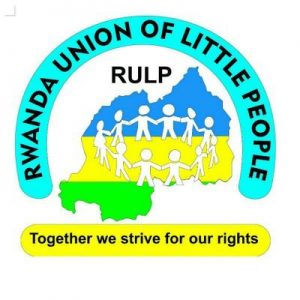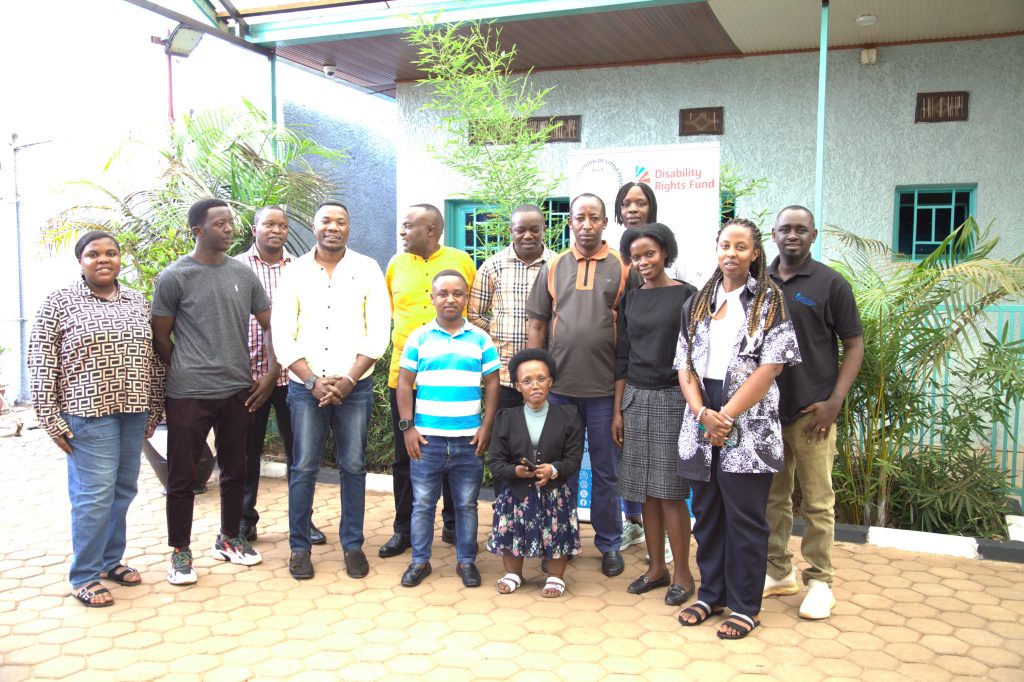
While Rwanda has made commendable strides in disability rights, local development plans still fall short of fully integrating the needs and voices of marginalized groups. That is why Rwanda Union of Little People (RULP) held a strategic meeting with Kayonza District partners to address the often-overlooked barriers faced by Persons with Short Stature in accessing social and economic opportunities. This meeting marked a critical step toward bridging that gap, fostering collaboration between grassroots advocates and district planners to ensure that inclusion is not just a policy ideal, but a lived reality.
During the meeting, Honorine Tuyishimire, Executive Director of the Rwanda Union of Little People emphasized the importance of intentional inclusion in district development processes.
“Inclusion is not just about being present, it’s about being heard, respected, and reflected in the decisions that shape our communities. At RULP, we are committed to ensuring that Persons with Short Stature are not left behind in Rwanda’s development journey. This meeting with Kayonza District is a step toward transforming plans into practice.” She stated.
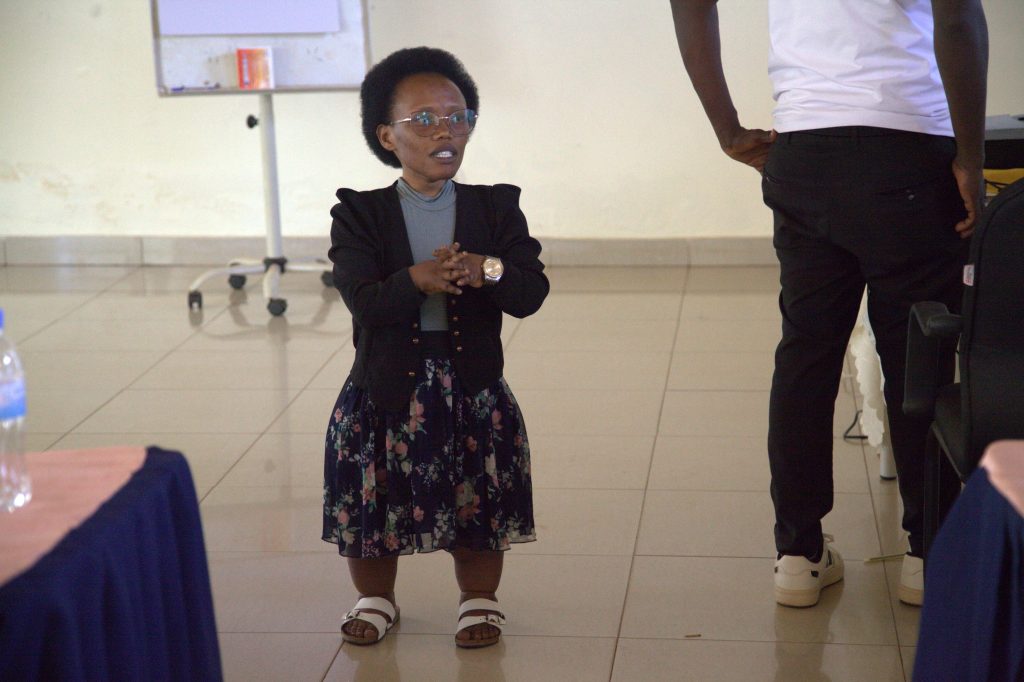
“I wish each of you would take time to truly understand the barriers we face in accessing social and economic opportunities, because I am certain that each of you has one or more ways to help address them.” she added.
Bonaventure Rutagengwa, Eastern Regional Representative at the Society for Family Health (SFH) in Rwanda, noted that the meeting was a valuable learning opportunity for him personally and for SFH as an institution to know persons with short stature and their barriers.
“For real, this meeting has been a great chance for me and for SFH as a whole, because before today I did not know much about persons with short stature and the barriers they face. I now understand that their challenges are real and often overlooked, especially when data from districts does not capture their presence. Going forward, I am committed to ensuring that youth with short stature are recognized and included in our programs, so they too can benefit from the opportunities we create,” he said.
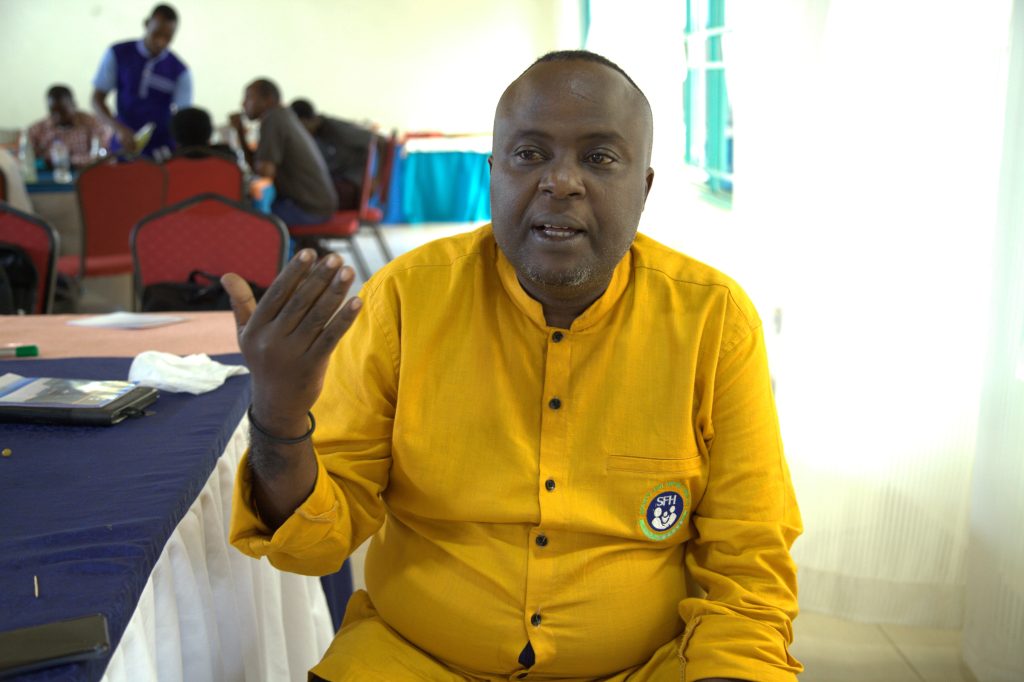
RULP EXECUTIVE Director has simply explained about the challenges that people with short stature face related to social economic. She said that these barriers include mainly systemic, social and physical.
“Persons with short stature continue to face multiple barriers in accessing social and economic opportunities. They are often not included from employment because of stigma and stereotypes, overlooked in entrepreneurship and income-generating programs, and left out of vocational training and skills development initiatives. In many cases, they also struggle to access finance and credit facilities, and even when opportunities exist, physical infrastructure such as markets, workplaces, and cooperatives remain largely inaccessible” She explained.
She added that these challenges are not about lack of ability but about systemic barriers and that is why advocacy and partnership are so critical. “Together, we must ensure that persons with short stature and disability in general are recognized, included, and supported to contribute fully to Rwanda’s development.”
Denise UWASE has been in this meeting from Shooting Touch, an organization that turns basketball courts into classrooms, community centers, and health clinics. Reflecting on the meeting, Denise shared how eye-opening the discussion had been for her, especially regarding the inclusion of persons with disabilities in sports.
“This meeting has truly been an eye-opener. I had never considered how persons with short stature experience basketball spaces. Now I see how much potential there is to make our courts more inclusive, not just for play, but for dignity and belonging,” she said.
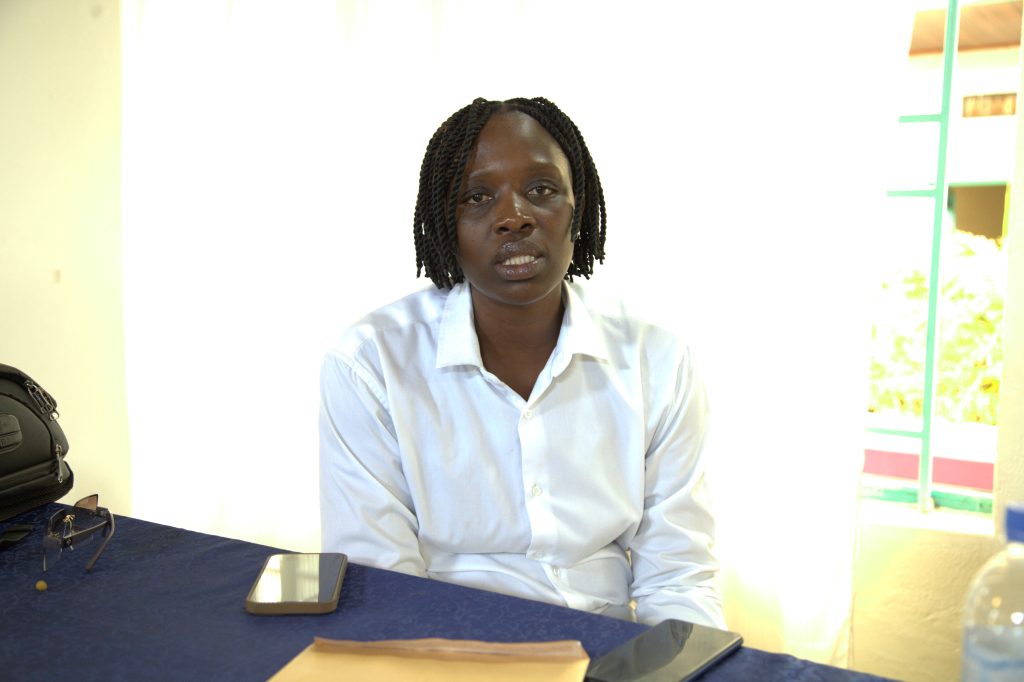
Representing the district’s commitment to inclusive governance, Ruremesha P. Orale, Disability Mainstreaming Officer at Kayonza, acknowledged the importance of integrating the voices and needs of Persons with Short Stature into local development frameworks. He emphasized that inclusion must be proactive, not reactive. He called on all participants to take concrete steps toward inclusive development. He emphasized that inclusion must go beyond policy statements and be reflected in everyday planning and implementation.
“Let’s commit to reviewing our plans, engaging persons with short stature directly, and ensuring that our programs reflect their realities. Inclusion is everyone’s responsibility, and it starts with us. And lets the meeting remind us that disability inclusion is not an add-on but, a responsibility. As a district partners, we must ensure that our plans, budgets, and public spaces reflect the realities of all citizens, including those with short stature. Their participation strengthens our development, not complicates it.”
Inspired by the dialogue, Denise expressed a strong desire to collaborate with RULP in future advocacy efforts.
“I truly hope Shooting Touch can work hand-in-hand with RULP to advance inclusive sports advocacy. Together, we can transform basketball courts into spaces of empowerment for persons with short stature, where visibility, respect, and opportunity thrive. I promise you that working together may change various things including society’s mindset toward the ability of persons with short stature, sport infrastructure, attract donors and even it is a good awareness campaign.”
In conclusion of the meeting, RULP Executive Director delivered a powerful message urging participants to move beyond passive support and embrace disability inclusion as a personal responsibility. She emphasized that true change begins when individuals recognize and internalize the barriers faced by persons with short stature and commit to dismantling them within their own domains of influence.
“Inclusion is not just a policy, it’s a mindset. We must feel the barriers others face as if they were our own. Only then can we begin to change systems, spaces, and attitudes wherever we are.”
She also requested all the partners to commit three things in their representing organizations including to be eyes or ambassadors of inclusion in their institutions wherever possible, share all things they have learned in the meeting with their colleagues at work so that the message reach to various people and decision makers for change purpose and lastly, to let services users chose the best way to be served if the included service is no more.
